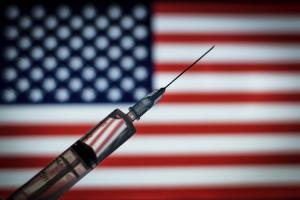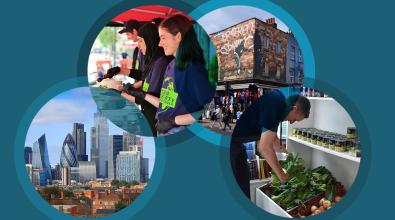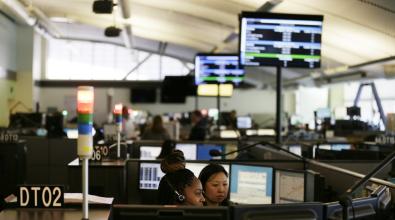Booster shot: What mayors can do to help when a COVID vaccine comes

In the race for a COVID-19 vaccine, there’s been enough good news to feel hopeful. Multiple vaccines are in clinical trials. Some of these experiments are showing encouraging results. And Dr. Anthony Fauci, the nation’s top infectious disease expert, said this week he remains “cautiously optimistic” that we’ll know if there’s an effective, safe vaccine by the end of the year or start of 2021.
On the other hand, just because there’s a vaccine doesn’t mean people will take it. According to a pair of recent polls, more than one-third of Americans say they will skip getting the vaccine when one becomes available, a choice that would put their health, and potentially that of others, at continued risk.
What city leaders can do about this was the subject of yesterday’s online coaching and learning session of the COVID-19 Local Response Initiative. Monica Schoch-Spana of the Johns Hopkins Bloomberg School of Public Health led 128 mayors in a discussion of how to boost the public’s acceptance of and access to a COVID-19 vaccine when it’s available.
“Operation Warp Speed, the American initiative for COVID-19 vaccine development and deployment, operates under the unfounded notion that if we built it, they will come,” Schoch-Spana said. “But the social and behavioral science on vaccine uptake tells us that this assumption, sadly, is not accurate. It’s not enough to have a vaccine that’s clinically successful. We also have to have a vaccine that’s socially acceptable and readily available.”
[Get the City Hall COVID-19 Update. Subscribe here.]
Schoch-Spana left mayors with four recommendations of things they can do, drawn from a recent report she co-authored on the public’s role in COVID-19 vaccination.
1. Communicate in meaningful, personally relevant terms. It’s not enough to just tell the public to get vaccinated. Among some people, there are many layers of misinformation and distrust to unravel. It’s critical for local leaders to do deep community-based research here, and listen to residents about what their concerns are. “It’s by having those insights,” Schoch-Spana said, “that public-health and elected leaders can communicate back in relevant and meaningful terms, creating a strong antidote to misinformation.”
Schoch-Spana said mayors could partner with community groups, healthcare networks, universities, and others to do this research, and stressed that cities need to pay particular attention to what they’re hearing in communities of color, who have suffered disproportionately from the impacts of COVID-19 and who polls suggest are among the most wary of a vaccine.
2. Earn the public’s confidence that vaccine allocation and distribution are even handed. Healthcare and other essential workers are likely to be among the first to get the vaccine. While mayors won’t have a direct role in deciding this and other matters of prioritization — these are national-level decisions — they need to be ready to communicate the plan and how it will be implemented at the local level.
How will the vaccine be distributed? To whom? In what order? The public will soon begin asking these questions, and mayors will need to be transparent in their answers, Schoch-Spana said. “Public confidence can be boosted,” she said, “such that people see decision-making as neither capricious nor unjustly weighted to favor some people over others.”
[Read: What mayors can do to boost vaccination this flu season]
3. Make vaccination available in safe, familiar, and convenient places. Once vaccine supplies become available in large quantities, infrastructure will need to be assembled to administer it to the public. Partnerships with faith-based groups, employers, labor unions, and other organizations will be critical here in order to meet people where they are, Schoch-Spana said. Mayors may also want to consider bundling COVID-19 vaccination with other services they’re offering those in need, like food assistance. “That would communicate that authorities are thinking broadly about people’s wellbeing,” she said, “and not just about getting a jab in someone’s arm.”
4. Establish accountability systems. There will no doubt be hiccups and controversies along the way, which is why it’s important to build in accountability mechanisms from the beginning. Schoch-Spana suggested states — as well as some of the larger cities — set up public oversight committees to review and report on whether the vaccination process is proceeding in a fair way and whether target groups and marginalized populations are being served. These committees need to be demographically diverse and inclusive of different sectors and viewpoints within the city. Having an oversight committee monitoring for effectiveness and equity “can inspire greater public confidence in COVID-19 vaccines,” she said, “and also cultivate a sense of collective ownership of this critical good.”


